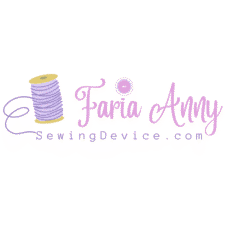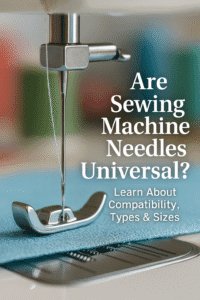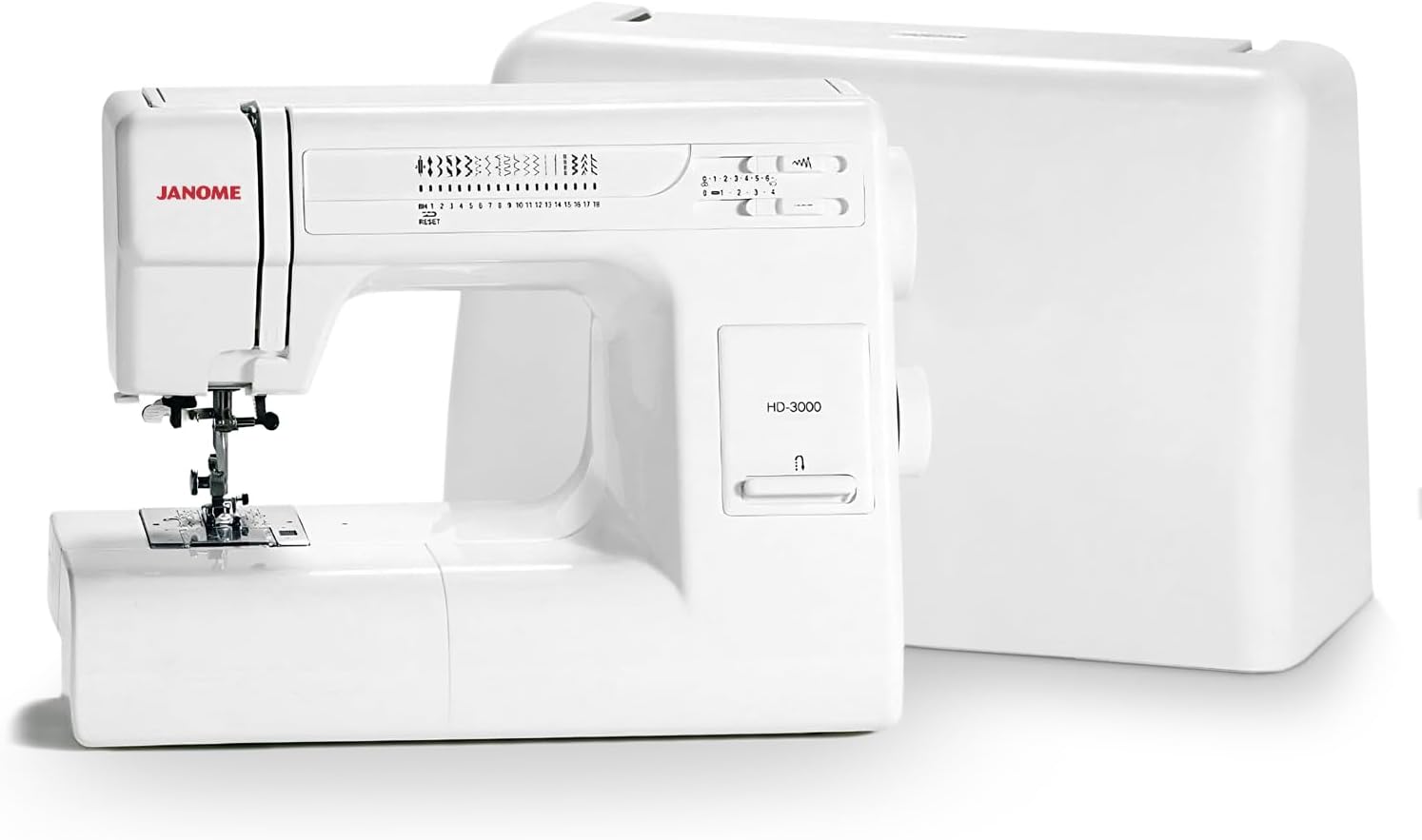Are Sewing Machine Needles Universal? A Complete Guide to Types, Sizes, and Choosing the Right One
You’re standing in the notions aisle, ready to start a new project, faced with a wall of sewing machine needles. You see dozens of brands, types, and sizes. It’s one of the most common points of confusion for any sewist: Are these needles all the same? Can you use a Singer needle in a Brother machine? Are they universal?
The answer is both **YES** and **NO**. For the vast majority of modern home sewing machines, needles are universal in **fit**, but they are absolutely not universal in **function**. As sewing experts, this guide will clarify this crucial distinction. We’ll explain the needle system that makes them fit, break down the different types and sizes you need for various fabrics, and ensure you can always choose the perfect needle for a flawless project.
The “Universal Fit”: Understanding the 130/705 H System
The “yes” part of the answer lies in the needle’s physical shape. Nearly every single home sewing machine manufactured in the last 50 years—including all major brands like **Brother, Singer, Janome, Juki, Bernina, and Pfaff**—is designed to use the same type of needle. This is known as the **130/705 H system**.
The key feature of this system is the needle shank (the top part that goes into the machine). It is cleverly designed to be rounded on the front and **perfectly flat on the back**. This flat back is a foolproof design that ensures the needle can only be inserted into the machine’s needle clamp in the correct orientation. This positions the needle’s eye and a small groove (the scarf) perfectly for the bobbin hook to pick up the thread and form a stitch.
The Exception: This universality applies only to domestic (home) sewing machines. **Industrial sewing machines** use different systems, often with fully round shanks, and their needles are NOT interchangeable with home machines.
Not Universal in Function: A Guide to Needle Types
This is the “no” part of the answer, and it’s the secret to beautiful, trouble-free sewing. While most needles will *fit* your machine, using the right *type* of needle for your specific fabric is essential to prevent skipped stitches, broken threads, and fabric damage.
Common Needle Types and Their Uses:
- Universal Needles: The default choice. They have a slightly rounded point and are a jack-of-all-trades for basic sewing on woven fabrics like quilting cotton, poplin, and linen.
- Ballpoint / Jersey Needles: Essential for knit fabrics (like t-shirt material). Their rounded tip is designed to push aside the fabric’s knitted fibers instead of piercing them, which prevents the fabric from running or getting holes.
- Stretch Needles: A specialized version of a ballpoint needle. It has a deeper scarf and a unique eye shape designed to prevent skipped stitches on extremely stretchy fabrics like Lycra, spandex, and activewear.
- Jeans / Denim Needles: Built for power. They have a very strong, reinforced shaft and a sharp, narrow point designed to penetrate dense, tightly woven fabrics like denim, canvas, and twill without breaking.
- Leather Needles: These are unique. They have a chisel-like, wedge-shaped point that cleanly cuts a small hole in non-woven materials like real leather, suede, and vinyl, allowing the thread to pass through easily.
- Microtex / Sharps Needles: The choice for perfectionists. They feature a very slim, extra-sharp point, ideal for creating perfectly straight stitches on fine, delicate fabrics like silk, chiffon, and microfiber.

1. The Essential Needle Variety Pack
The best way to be prepared for any project is to have a variety of needles on hand. A combo pack from a quality brand like Schmetz or Organ typically includes the most-used types (Universal, Jeans, Stretch) in several sizes. This is the single most valuable purchase for any new sewist.
Check Price on AmazonDecoding the Numbers: Understanding Needle Sizes
On every needle package, you’ll see a two-number size, like “80/12” or “90/14.” These numbers refer to the diameter of the needle blade.
- European Sizing (e.g., 80): The first number is the metric size. An “80” needle has a diameter of 0.80mm.
- American Sizing (e.g., 12): The second number is the American size.
The rule is simple: The finer the fabric, the smaller the number. The heavier the fabric, the larger the number.
| Needle Size | Best for… |
|---|---|
| 60/8 or 70/10 | Very fine, delicate fabrics like chiffon, silk, organza. |
| 80/12 | Lightweight fabrics like quilting cotton, shirt material, poplin. |
| 90/14 | Medium-weight fabrics like flannel, denim, canvas, linen. The most common all-purpose size. |
| 100/16 or 110/18 | Heavyweight fabrics like thick denim, upholstery, or multiple layers. |

2. Needle Organizer or Labeled Pincushion
What do you do with a needle that’s been used but is still sharp? An organizer is the answer. A labeled pincushion or a dedicated needle case helps you keep track of your different needle types and sizes, preventing you from accidentally using a ballpoint needle on your next cotton project.
Check Price on AmazonFrequently Asked Questions (FAQ)
How often should I change my sewing machine needle?
You should change your needle after every 8-10 hours of active sewing time, or at the start of every new project, whichever comes first. Needles are inexpensive, and a fresh, sharp needle is the best insurance against skipped stitches, fabric pulls, and other frustrations.
What happens if I use the wrong needle?
Using the wrong needle type or size is a primary cause of common sewing problems. It can lead to skipped stitches, shredded or broken thread, permanent holes or runs in your fabric, and even broken needles that can potentially damage your sewing machine.
Can I use a Singer needle in my Brother machine (or vice-versa)?
Yes, absolutely. As long as the needles are for a domestic (home) sewing machine and have the flat-back shank (130/705 H system), the brands are completely interchangeable. Focus on choosing the right type and size for your fabric, not the brand of the needle.
Conclusion: The Universal Truth
So, are sewing machine needles universal? The truth is both yes and no.
They are **universal in fit**, thanks to the standardized flat-shank system used by virtually all home sewing machines. But they are **not universal in function**, as different fabrics demand needles with specialized points and strengths. By remembering to match the needle type to your fabric and the needle size to the fabric’s weight, you will eliminate countless sewing problems and elevate the quality of your work. Choosing the right needle is the fastest, cheapest, and easiest way to achieve more professional results.



























